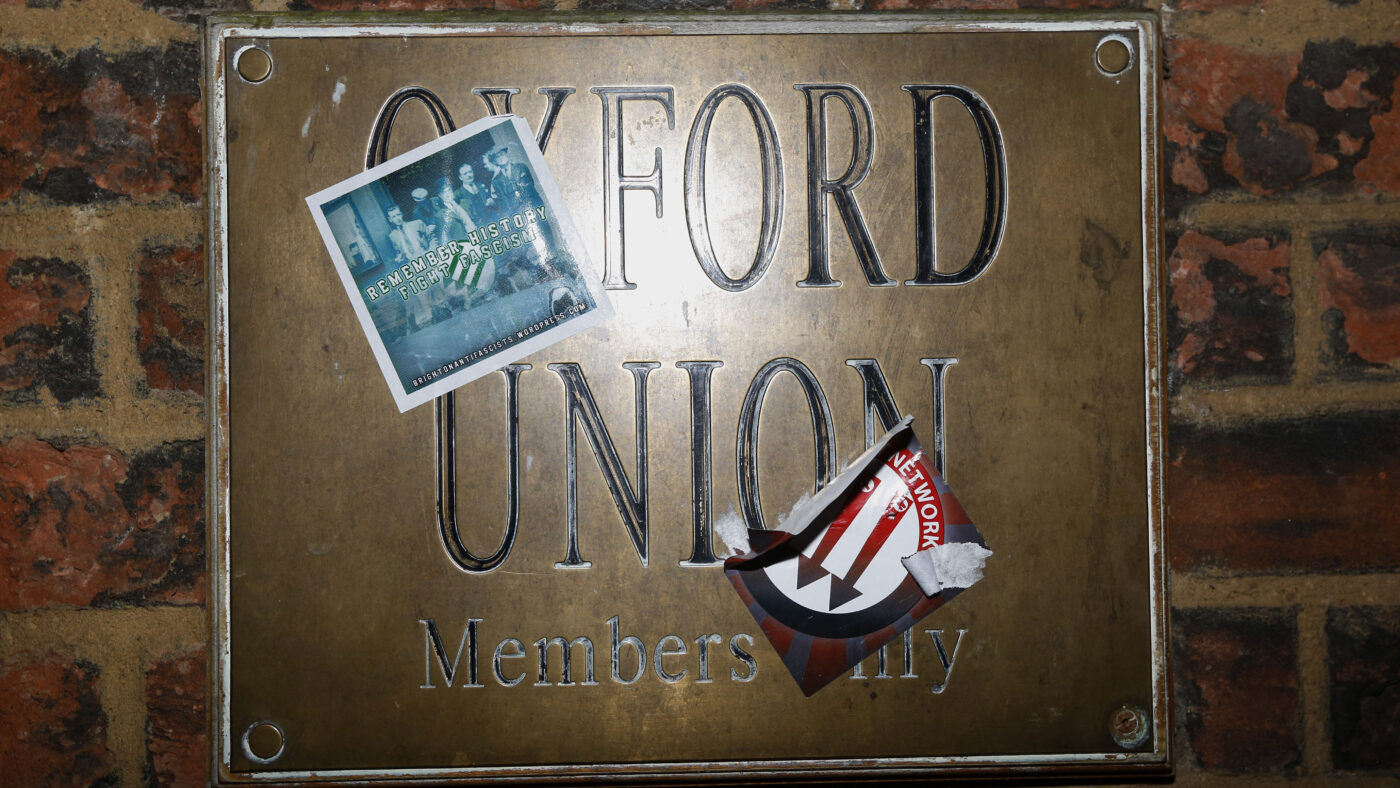Last year, the journalist Simon Kuper released a very silly book called Chums. Kuper wanted to explain Brexit, but suffered from working at The Financial Times, and thus from never having met anyone who had actually voted to Leave. But then he had a brainwave.
He noticed many leading Eurosceptic thinkers and campaigners – your Johnsons, Goves, Hannans, Rees-Moggs, and Cummingses – had been his contemporaries at Oxford during its post-Brideshead 80s golden age. Many had been close to the Oxford Union (OU): the debating society/cheap bar/lunatic asylum that for the last 200 years has marketed itself as a school for aspiring Prime Ministers. Kuper argued that Brexit was a consequence of these players enacting their teenage political fantasies on a national stage.
This thesis was superficially attractive, especially for other ex-Oxford graduates still smarting at missing out on the Sloaney high-jinks of Boris and co. That it was mostly hogwash didn’t really matter. Most obviously, it ignored 17 million or so Leave voters who hadn’t been Union politicians – including, erm, Dominic Cummings – and all the leading Remainers who were also ex-Union hacks. More fundamentally, it failed to understand that there were any justifications for Brexit not linked to personal advancement.
I mention all of this because Kuper and his book are excellent examples of how the OU occupies an outsized role in the minds of its critics – a theme that has reared its head once more this week with another Oxford-related media row.
This week’s tale concerns the university’s Student Union (SU) reportedly cutting ties with the OU over its decision to invite Kathleen Stock, the gender-critical academic who was ‘cancelled’ by the University of Sussex for her views on biological sex. Unlike the OU, the SU is not a debating society, but nominally oversees student welfare. In practice, this means ensuring the college Junior Common Rooms are well-stocked with condoms. It also provides a platform for aspiring Labour politicians to lecture students about the evils of tuition fees, heterosexuality, and the state of Israel.
Naturally, Stock’s views don’t go down well with the blue-haired Palestine enthusiasts and prosecco Trotskyites who make up the SU’s staff. So they have voted to cut fiscal ties and ban the OU from their freshers fair, where the society signed up a third of its new members last year.
This is exactly the sort of challenge to open debate and discussion that the Government’s Freedom of Speech Bill – which has just been accepted by the House of Lords – is designed to tackle. Even if the freshers’ fair ban goes ahead, one imagines it will do little to dent the OU’s reputation. If it can survive appeasing Hitler and a visit by Stormy Daniels, it can handle a few future Shadow Ministers for Widgets and Trans Liberation throwing their toys out of the pram.
Nonetheless, that they are bothering to do so is not only because Sociology MAs leave you with time to kill. It is because the OU has become a useful symbol: a by-word for privilege, tradition, and everything that used to be good about Britain. Bringing it down would not only fit in with the progressive disdain for reason, argument, and debate, but because it would be a token triumph against the forces of reaction.
The problem with this is not just that it raises the spectre of Regina George amongst Union members, but that it buys into the society’s own bullshit.
To be clear, I like the Oxford Union. As a student, I sat through spoken at plenty of debates, and helped various friends of mine who were Presidents and Officers. I sat on its Library Committee, organised a debate on the English Civil War, and even shared a G&T with Edwina Currie and a dance with Malala Yousafzai. So I have a little skin in the game.
But I would also be the first to say that one should not take seriously the Union’s bumpf. The idea it is a hothouse of future premiers is a tired cliché. For every Boris Johnson there is a Rishi Sunak: someone who reached Number 10 whilst spending their time at Oxford reading Jilly Cooper novels, rather than clambering the greasy pole.
Of course, plenty of senior politicians and journalists have darkened its doors – but they are dwarfed by the number who did not. Johnson was the first ex-President Prime Minister since Edward Heath, who was himself only the first since H. H. Asquith. Theresa May, to be fair to her, was an ex-First Lady – and when Margaret Thatcher attended Oxford, women weren’t even allowed to be members.
For every great rhetorician the Union produces, it also churns out a large number of misfits and egomaniacs whose dedication to the cause of becoming President is matched only be their capacity to drone on about it at parties. I am in full accordance with the SU in finding that tedious, but they should realise they are being just as dull in obsessing over it too.
Before I went to Oxford, I was warned by Fraser Nelson to avoid student politics. I half-succeeded. Would my life have been radically different had I been Union president? Not particularly. The real highlight of my time in Oxford was managing to visit every pub in the city, and the real privilege was in attending one of the world’s great universities – something every member of the SU shares with the plotters and prigs of the Union.
Click here to subscribe to our daily briefing – the best pieces from CapX and across the web.
CapX depends on the generosity of its readers. If you value what we do, please consider making a donation.


